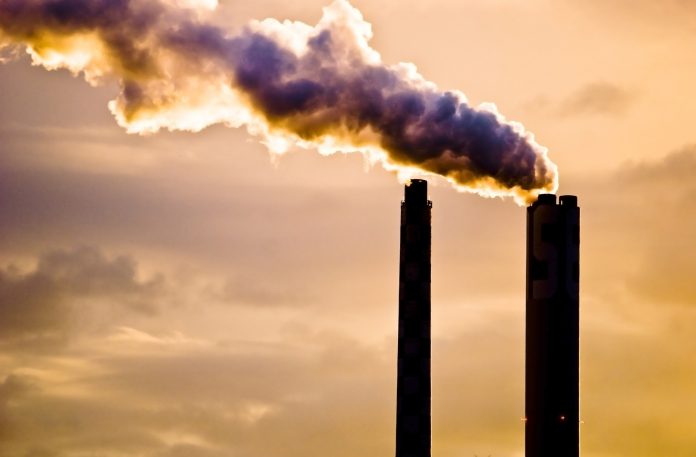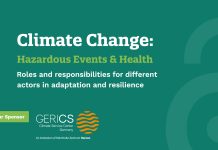Sylvie Gallage-Alwis, Partner at Signature Litigation, argues here that companies should monitor the European Commission’s environment-related actions
France, Belgium, the United Kingdom, Germany, Austria, Bulgaria, the Czech Republic, Denmark, Luxembourg, Greece, Spain, Hungary, Italy, Latvia, Portugal, Poland, Romania, Sweden, Slovakia, Slovenia – this is the list of the EU Member States which have been or are currently being warned or sued by the European Commission for breach of environment-related legislation – it is very long, with some States being sued for multiple types of pollution.
Statements by the European Commission these past years create no ambiguity on its wish to push the Member States to focus on environment-related issues. It is helped by the Court of Justice of the European Union in this respect. The latter makes it indeed clear that all excuses from governments, cities, municipalities will be dismissed. For instance, in its decision against France dated 24th October 2019, France argued that it did its best faced with the magnitude of structural transformations needed, the financial burden they represent, the increase in the number of vehicles in France linked to the increasing number of the population, the time needed to modernise the vehicle fleet, the fact that French people like moving by car and the sensitivity of public opinion when it comes to a tax increase. The Court applied strict liability, ruling that the objective finding of a breach by a Member State is sufficient and that whether the State was negligent or whether the breach is linked to technical or structural difficulties is irrelevant (Case C-636/18).
Action on air and other types of pollution
Air pollution is at the forefront of the Commission’s action, based on the findings of the European Environment Agency (EEA). In its Air Quality in Europe 2020 report published on 23rd November 2020, the latter states that “Europe’s most serious pollutants, in terms of harm to human health, are particulate matter (PM), NO2 and ground-level ozone (O3)…Air pollution also damages vegetation and ecosystems”. As such, France is again the target of a claim filed by the Commission on 30th October 2020, and Italy was condemned on 10th November 2020 for “systematically and persistently” breaching PM10 levels (Case C-644/18). Spain was also warned in October 2020 to better implement relevant EU legislation.
But other types of pollution are tackled. For instance, just in October 2020, amongst others, Slovakia has been asked to improve air pollution arising out of industrial activity, Poland is targeted for pollution of its bathing water, France for the harmful effects of contamination of water intended for human consumption, Romania for its urban wastewater treatment.
This fight at EU level will, of course, impact the private sector as the Member States are asked to demonstrate that they are taking measures for pollution to decrease.
In a report published on 10th November 2020, the European Environment Agency stated that: “one of the most evident short-term effects of COVID-19 lockdowns has been the dramatic improvement in air quality, especially in some of the worlds’ most polluted cities. Although air quality levels appear to be returning near pre-lockdown levels in many parts of the world as stricter lockdown measures are lifted, this period has revealed some of the benefits that could be achieved from a lasting and sustainable reduction in air pollution” (COVID-19 and Europe’s environment: impact of a global pandemic, EEA, 10 November 2020).
Closing remarks
Many, therefore, claim that the reduction of transport (air, road, water) but also lower industry activity would be the solution to pollution issues. Several States have announced that they will enact laws reducing and banning some types of activities and products, in line with the European Green Deal. Companies need to get prepared for multiple legislative changes and should they want to fight such changes: document the environmental impact of their activities. No industry should be deemed out of scope. It is not just the obvious ones that will be impacted. For instance, even the financial sector is asked to take measures by notably demonstrating that they are investing in sustainable projects and dropping investment in polluting activities. The high-tech industry and online selling are subject to accusations as well, with some stating that online selling increases pollution through increased transport needs and servers.
COVID-19 and the climate emergency
Earlier in 2020, the UNFCCC (United Nations Framework Convention on Climate Change), with UK and Italian partners, decided to postpone the COP26 UN climate change conference, originally planned for November 2020, in light of the current COVID-19 pandemic. As such, all parties will focus on the crucial issues for discussion at the COP26 UN climate change conference including increasing climate ambition, building resilience and lowering emissions”.
UN Climate Change Executive Secretary Patricia Espinosa provided her own comments on this development in light of the pandemic: “COVID-19 is the most urgent threat facing humanity today, but we cannot forget that climate change is the biggest threat facing humanity over the long term. Soon, economies will restart. This is a chance for nations to recover better, to include the most vulnerable in those plans, and a chance to shape the 21st century economy in ways that are clean, green, healthy, just, safe and more resilient. In the meantime, we continue to support and to urge nations to significantly boost climate ambition in line with the Paris Agreement.” (1)
Between 23rd November and 4th December 2020, an important series of virtual events took place, the UNFCCC Climate Dialogues before COP26 which is now due to take place at the end of 2021. Patricia Espinosa stressed how both COVID-19 and the climate emergency can be addressed in her forward-looking remarks: “COVID-19 and the climate emergency can only be addressed by building forward, by re-embracing multilateralism, by honouring commitments under the Paris Agreement and continuing to build trust in the climate process.” (2)
References
- https://unfccc.int/news/cop26-postponed
- https://unfccc.int/news/climate-dialogues-set-to-increase-momentum-for-greater-climate-ambition
Additional information above compiled by the Editor of Open Access Government.











